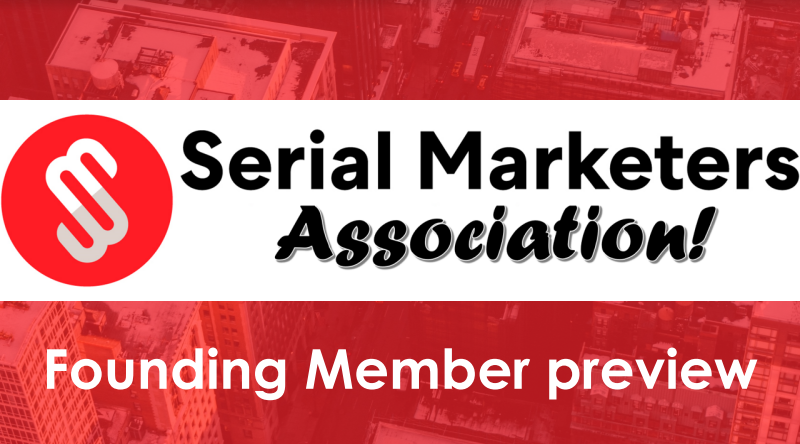
Few stories write their own columns better than this one. The president of the United States was interviewed about his search habits, and he couldn’t even get the search engine’s name right.
Besides any political jabs, which were so easy I generally steered clear of them, it’s a fascinating case study in what happens when a chief of state talks about engaging the activities of the common people. Chief executives of any sort are pretty far removed from the front lines, and this is a great example.
While the interview might be mortifying for some, it’s almost cute and endearing. One other point not included here, inspired by some comments on MediaPost’s blog — the President has limitless technological resources for satellite imagery, and he’s using Google Earth. Google 1, CIA 0.
WATCHING THE CLIPS OF GEORGE W. Bush’s CNBC interview that were
posted on YouTube, I kept
trying to think about what it all meant. After all, this is our nation’s
president, our Commander in Chief, the so-called leader of the free world.
Anything he says about the economy, international relations, and social issues
can potentially impact billions of people. So what can we learn from President
George W. Bush when he talked about "the Google" with CNBC’s Maria Bartiromo
last Monday?Bartiromo asked the President, "I’m curious, have you ever Googled
anybody? Do you use Google?"Let’s parse his response, as posted in the transcript on MSNBC, and see
what this could mean for the future of search, the Internet, and the free world.
Read the rest of the column in the extended entry, or on the MediaPost blog, where you’ll find a bunch of comments.
(continued from the column)
Bush: "Occasionally."
The President is a busy man, and he doesn’t have time to go
online. There’s little he needs to search for, since he has a gaggle of advisors
always bringing him information. Yet, on occasion, even the world’s most
powerful man turns to search, and it points to a future where search engines are
used by every person alive. Google isn’t just for the masses; it’s also for the
world’s most powerful.
Bush: "One of the things I’ve used on the Google is to pull
up maps."
The President understands just how powerful the top search engine
is. It isn’t just Google –it’s THE Google. One can even infer that the
President predicts Google will maintain its dominance of the search landscape
for the foreseeable future. Is it any wonder that last Monday, the day of the
CNBC interview, Google’s stock topped $480, its highest total to date? The
Google could not find a better spokesman than the President.
President Bush is also an avid map user. This points to a very
bright future for local search.
Bush: "I forgot the name of the program, but you get the
satellite and you can–like, I kind of like to look at the ranch on Google,
reminds me of where I want to be sometimes."
Search isn’t just about connecting people with information and
commerce. It’s emotional. It reminds me of the types of revealing searches that
were exposed in the AOL search database this summer. Checking one of the
databases online, there’s a search from user number 17979059 for "crawford
texas," and the user visited westernwhitehouse.org, which has the floor plans to
Bush’s ranch. Maybe this user was our very own President Bush! Glancing at this
person’s other searches, he searched for several other cities in Bush’s home
state, and he also searched for "cleveland indians batting adverages." Our
President, you might recall, once ran the Texas Rangers baseball team, and the
spelling also indicates a connection. This searcher also looked for the "ups
store," which is a bit disappointing, since I’d hope that our nation’s leader
would use the U.S. Postal Service.
The President understandably couldn’t remember which program he
uses to view the ranch. Was it the Google Earth or the Google Maps, the MSN
Virtual Earth or the Mapquest? Many of the Internet titans are developing
increasingly sophisticated mapping services, and the President appreciates the
robustness of the sector.
Bush: "Yeah, I do it some."
This is a president who’s not afraid to change his mind (or,
perhaps, waffle). He doesn’t just search occasionally–he searches some.
Bush: "I tend not to e-mail or–not only tend not to
e-mail, I don’t e-mail, because of the different record requests that can happen
to a president. I don’t want to receive e-mails because, you know, there’s no
telling what somebody’s e-mail may–it would show up as, you know, a part of
some kind of a story, and I wouldn’t be able to say, ‘Well, I didn’t read the
e-mail.’ ‘But I sent it to your address, how can you say you didn’t?’ So, in
other words, I’m very cautious about e-mailing."
E-mail marketing is dead. Short all e-mail-related stocks.
President Bush is also rightly concerned about privacy. He
indicates that’s the No. 1 issue for hoi polloi and presidents alike. After all,
with a little careful sleuthing, I was able to find his search history in AOL’s
database. Just imagine what would happen if his entire search history, his
e-mails, and everything he has stored in the Google Desktop was revealed?
This President is setting the pace and tone for our nation. Ms.
Bartiromo, if you have a chance, in your next interview please ask him about
Yahoo’s Project Panama, Ask.com’s comeback, Microsoft’s digital media solutions,
and whether he downloads classic episodes of "The West Wing" on iTunes.
Meanwhile, we have a new candidate for a keynote speaker at the
next Search Insider Summit. Mr. President, clear your schedule. Maybe we’ll even
hold the next one in Crawford.







No Comments
Leave a comment Cancel